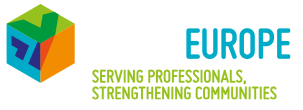Hope you’ve enjoyed the Chanukah week, celebrating with friends; family and your communities!
As the New Year approaches, and many people are making New Year’s resolutions, at Yesod we are thinking more about the Jewish value of questions. Whereas resolutions fix actions in a particular direction, questions open us to multiple and new ways of thinking. Since G-d’s first question to humankind, “Ayeka – Where are you?” relating to Adam and Eve (see below), Jews have thought critically about the choices they make and the life they lead. Asking questions does not mean we find all the answers, but it does mean we will be on the path to becoming wiser.
The Power of Questions
 Questions are potentially very powerful as they can build people up, create teams, solve problems and enhance programming. What type of questions do you use in your work?
Questions are potentially very powerful as they can build people up, create teams, solve problems and enhance programming. What type of questions do you use in your work?
We can see some great examples from the Torah when Adam and Chava (Eve) ate from the tree of knowledge of good and evil. G-d used open questions that allow for much longer responses and more creativity and information – Where are you? By contrast G-d also used closed questions that invite short focused responses that are usually easy to answer – Who told you that you were naked? Did you eat from the tree?
Think about how you use questions:
- To create clarity: “Can you explain more about this program?”
- To construct better working relationships: Instead of “Did you meet your Shabbat Dinner attendance goal?” ask, “How has attendance been at Shabbat dinners?”
- To help people think analytically and critically: “What are the consequences of making this event bigger?”
- To inspire people to reflect and see things in fresh, unpredictable ways:“Why did this work?”
- To encourage breakthrough thinking: “What is one thing that would improve our events?”
- To challenge assumptions: “What do you think we’ll lose if we make our Chanukah party free of charge?”
- To create ownership of solutions: “How can we increase the Jewish content in the program next week?”
Stay warm, safe, and keep asking questions,
The Yesod Team
Resources
To better understand different kinds of questions such as open/closed, probing, empowering, chunking, funneling and more, visit Changingminds and the Harvard Business Review. The following Eli Talk by Aliza Klein, founder of OneTable, explains how when she asked the right questions her organisation and programmes benefited.
We also invite you to gather your colleagues and community members for a study session focused on the Jewish practice of questioning using our Yesod source sheet. The source sheet was created using Sefaria which is a great place to find texts in Hebrew and English, and easily create source sheets. Feel free to copy, add to, or delete from, our source sheets to create materials that work for you.
And… The 10th of Tevet:
During the heart of the winter season there is a less well-known Jewish fast day called Asarah b’Tevet (literally ‘the 10th of Tevet’), which marks the beginning of Nebuchadnezzar’s battle against Jerusalem which would result 11 years later (in 586 BCE) in the destruction of the first Temple, and the 70 year Babylonian exile. It is a ‘minor fast’ that means that the fast goes from sunrise till nightfall. This year it is on Thursday 28th December. Learn more at MyJewishLearning.
Also, with Tu B’shevat coming up on 31st January, check out Yesod’s Tevet resources, called New Years and New Resolutions that is filled with great programming ideas for Tu B’shevat.
View Resource of the Month Archive for resources posted in previous months.
